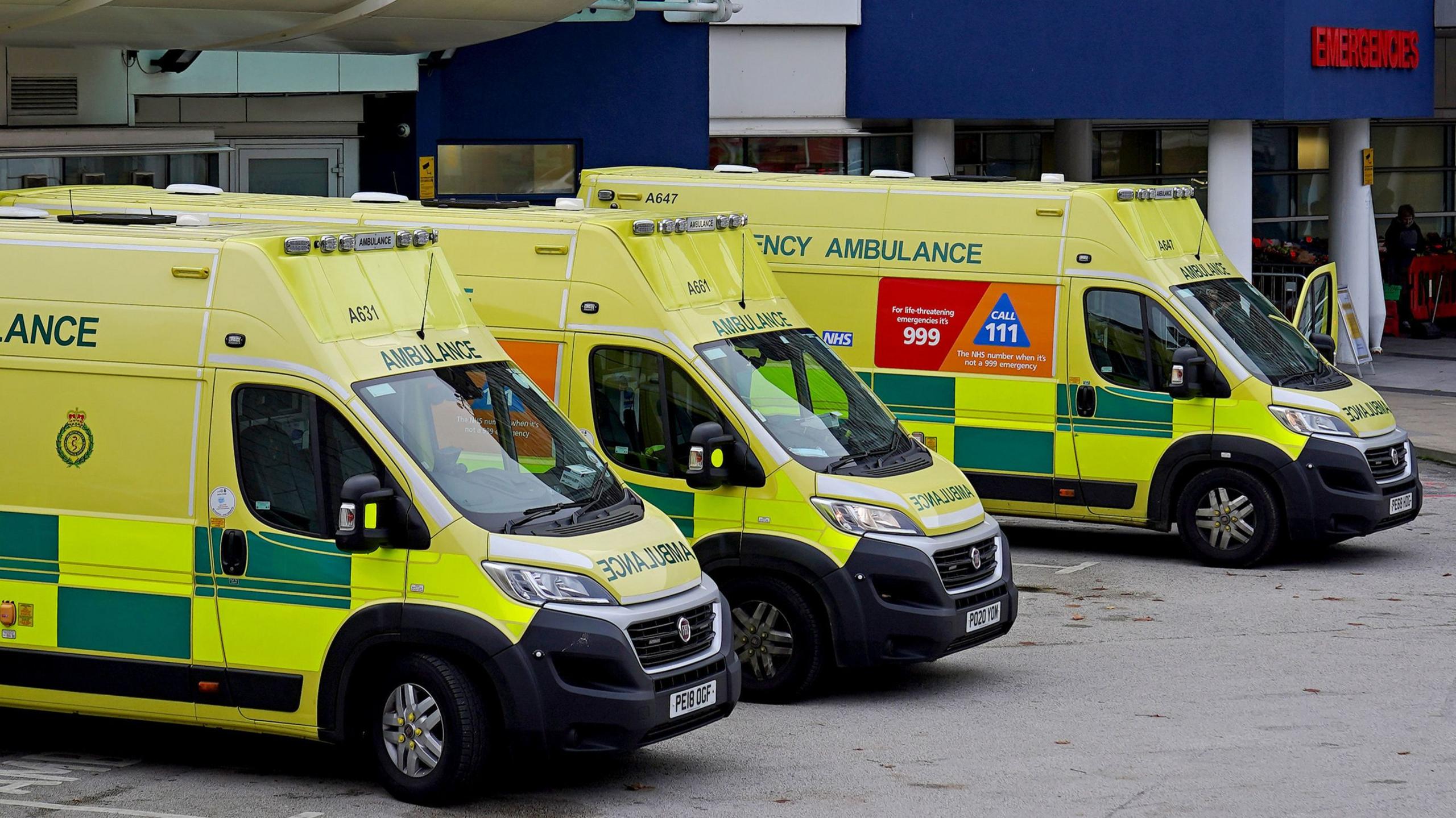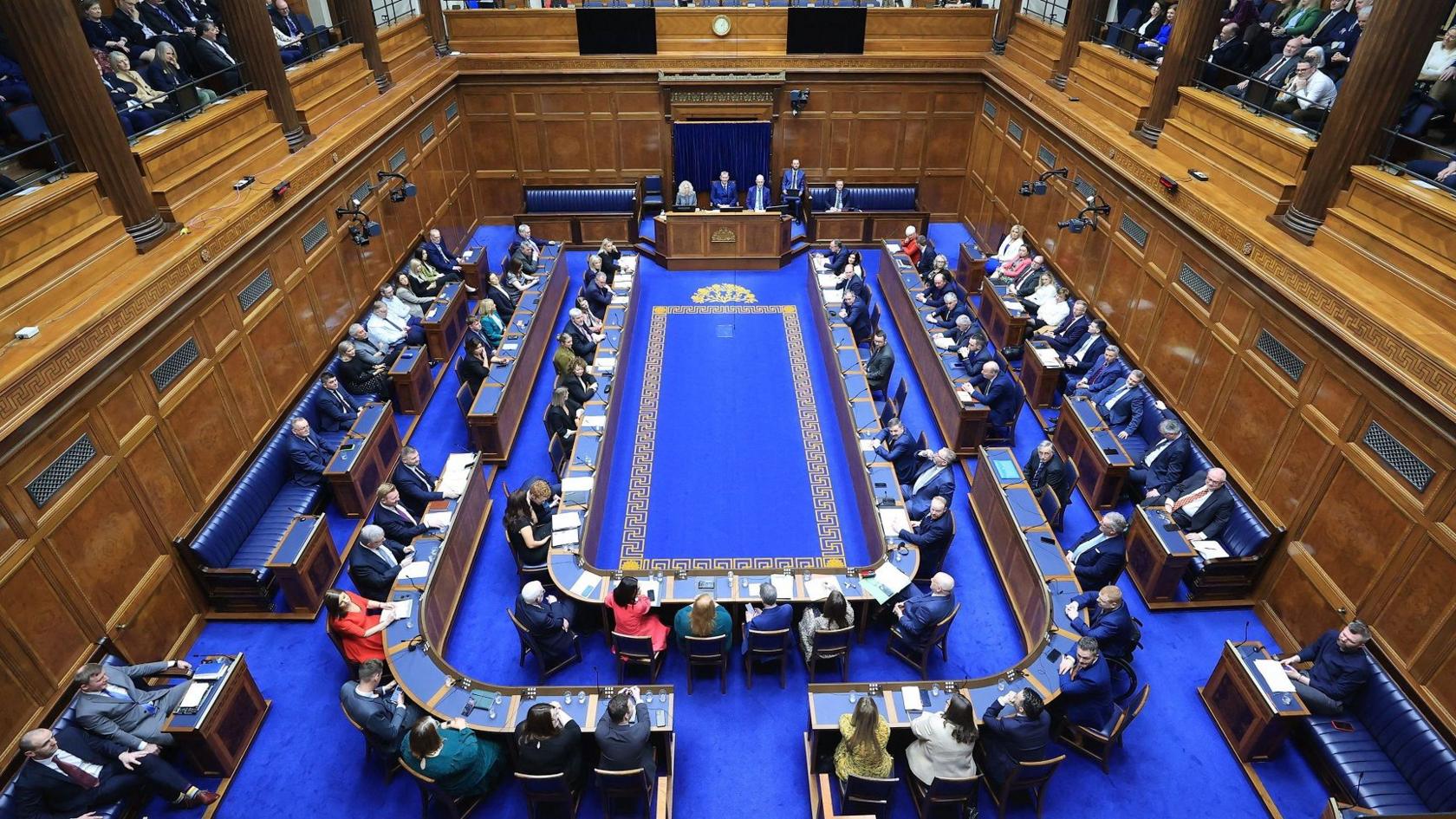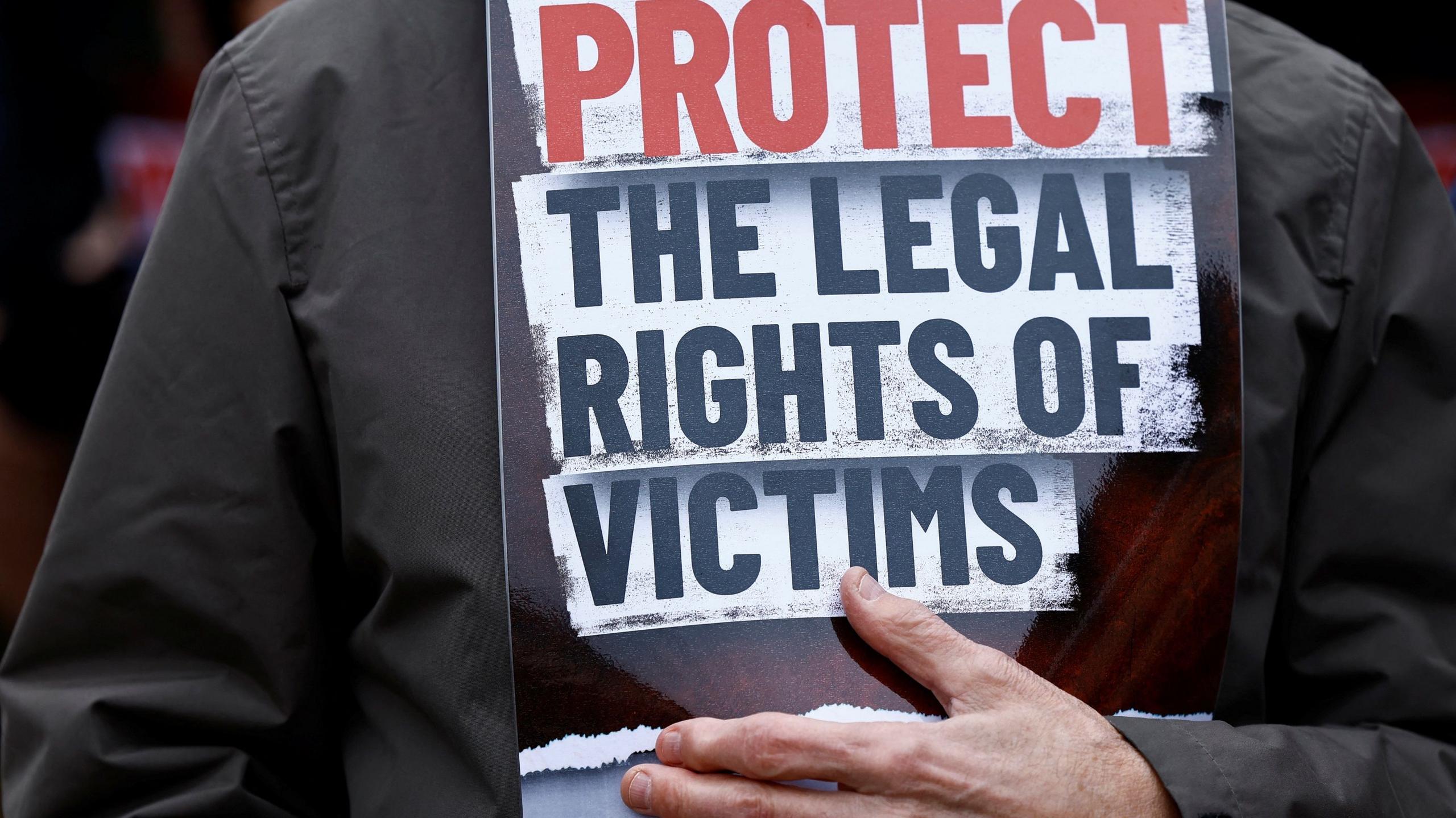SDLP manifesto: Key policies analysed

- Published
The Social Democratic and Labour Party (SDLP) has launched its 2024 election manifesto.
The party, which won two Westminster seats in Northern Ireland at the last general election, is fielding candidates in all of Northern Ireland's 18 constituencies.
But the 2022 Northern Ireland Assembly election was bruising for the SDLP as it lost four seats to finish with eight, meaning it had to go into opposition at Stormont.
The 2023 council poll was similarly tough as Mr Eastwood's party lost 20 seats, dropping to 39 overall.
A Marshall Plan to tackle health

When the party manifestos drop - they're scanned by journalists for a nuance.
The SDLP delivers with its suggestion that to "Save the Health Service" Northern Ireland needs a "Marshall Plan".
If my A level politics serves me correctly, that means a country lending support by means of providing billions of dollars, the receiving country taking ownership of its problems and strong leadership at the helm.
The SDLP, like other parties, says it will appeal to the Treasury for a health service transformation intervention.
We have seen this in action before - several times where local politicians have appealed to Westminster for more money - the difference is the SDLP has put a name to it.
It mentions that it will "seek dedicated" resource to specifically tackle waiting lists. From who?
While the Department of Health has dedicated money to solving the waiting list crisis - it has never been enough or recurrent.
No party manifesto is complete without mentioning that it will save/tackle the health service - but let's remember this is just a manifesto not a magician's book of tricks.
By mentioning better conditions for GP's, the waiting lists, terms and conditions for health service staff and workforce retention the SDLP ticks many boxes.
Solving Northern Ireland's health care crisis will take a lot more than a Marshall Plan - but the term itself breathes new life into an old problem - and that grabs attention.
Institutional reform

In what is hardly the first instance of political deja vu in this campaign, here’s a pledge the SDLP made earlier.
It is one of two parties in Northern Ireland that has been banging the drum on reform for some time.
In a previous session of parliament, the SDLP unsuccessfully attempted to tack on legislative changes to Stormont's structures to a bill passing through the Commons, to try and reduce future instability.
In this manifesto, the party is still pushing those proposals; namely removing the so-called veto that allows the largest unionist and nationalist parties in the executive to bring the institutions down at any time.
The SDLP jointly co-led the first Stormont power-sharing government in 1998, and has been the only party to wield that power and not walk out of government.
More than a quarter of a century has passed since the inception of power-sharing and the SDLP also argues that the titles of first and deputy first ministers should be renamed “joint first ministers”, to reflect that the jobs are equal.
Having failed to get enough seats in the last assembly election to qualify to join the executive, the party is now the official opposition at Stormont.
With power-sharing back up and running for more than 100 days the SDLP says its proposals on reform need to be pushed through while Stormont is stable, in order to avoid a repeat collapse.
Against the backdrop of Labour taking power there may be a greater chance of Number 10 giving this consideration in due course.
But getting the largest parties - Sinn Féin and the DUP - on board will be key to any significant changes and so far they’ve shown little appetite to do so.
Repeal the Legacy Act

Opposition to the government’s Legacy Act, passed last September, is something which has united all Northern Ireland parties and victims' organisations.
In particular, before Belfast High Court struck the clause out, the fact that perpetrators of troubles-era crimes were to be offered immunity from prosecution in return for information.
Labour has pledged to repeal the act “as quickly as possible” if it gains power.
The SDLP says its “over-riding priority” is to ensure that Labour is true to its word.
In theory it should be pushing at an open door.
How soon might this happen?
There is arguably some degree of urgency around this as the new legacy body, the ICRIR, is now up and running and uncertainty suits no-one.
What will replace the act?
Labour has pointed to legacy mechanisms set out, but not implemented, under the 2014 Stormont House Agreement.
As backers of that agreement, the SDLP and Labour are on the same page.
Environmental protection

The SDLP’s pledge to “campaign for an independent Environmental Protection Agency” will come as no surprise to anyone who has paid attention to opposition debates in the Assembly.
The party secured support from assembly members for this campaign in May 2024 and it backs up a commitment made in the New Decade, New Approach agreement that restored the Assembly in 2020.
Northern Ireland comes under the auspices of the UK’s environmental watchdog, the Office for Environmental Protection.
It has already flexed its muscles here with investigations into ammonia guidance.
It has also called the Department of Agriculture, Environment and Rural Affairs at Stormont out on governance failures.
Campaigners argue that a local agency would be more effective, but opponents of the proposal say the need is already met by the Northern Ireland Environment Agency which is part of the department.
The manifesto also pledges to “fight for sustainable funding for farming”, rooting that promise in environmentally sustainable methods and reflecting the wider industry change that is under way.
Improving NI's financial settlement

This is something that all parties are agreed on.
There has been recognition from the UK government that Northern Ireland has been funded below need.
Last month, the Stormont Executive and UK government agreed to review how Northern Ireland public services are funded.
The Executive has received an assurance it will be funded "at need" in 2026, but what that amounts to will not be clear until the next government carries out a UK-wide spending review.
The SDLP is also calling for a "comprehensive spending review" which allows the Executive to deliver a multi-year budget.
Again that has been repeatedly highlighted as a key problem with how Northern Ireland is funded, as government departments do not have the ability to plan ahead.
Further devolution of fiscal powers is also not a new idea.
An independent Fiscal Commission that worked on this concluded income tax would be the most effective form of economic devolution.
However it warned there are "important considerations" about the political and administrative capacity for Stormont to take on new responsibilities.
While devolving tax powers presents opportunities, it also presents risks.
Collecting taxes locally would mean a corresponding cut in the block grant - the funding provided by the UK government.
